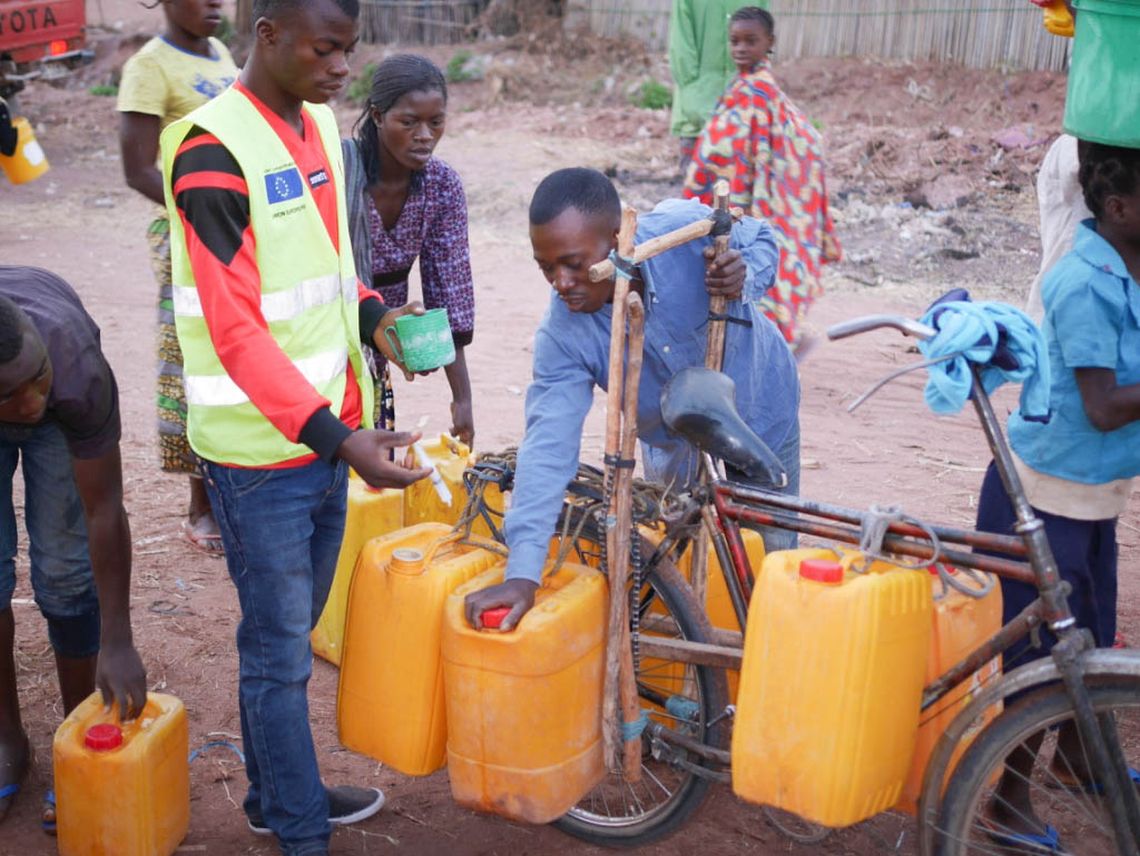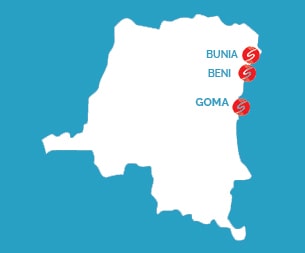Cholera has disappeared from industrialized countries for decades. Yet simple to prevent, treat and eliminate, “dirty hands disease” affects 3 to 4 million people and kills nearly 100,000 people each year because they lack access to safe drinking water and sanitation. This injustice particularly affects the people of the Democratic Republic of the Congo (DRC), the most affected country in Africa, where cholera has been permanently settled for several decades, and which in 2017 was hit by the biggest epidemic of the last 25 years, with more than 55,000 infected people and nearly 1,190 deaths.
By Alexandre Giraud, SOLIDARITÉS INTERNATIONAL CEO.
SOLIDARITÉS INTERNATIONAL questions: How to justify the number of deaths from cholera in the DRC, when short-, medium- and long-term solutions for the prevention and control of this infectious disease are known and tested? How can we explain these figures, when in Haiti, where the situation seemed to be out of control in 2012, closer coordination between state, humanitarian and private actors could lead to a drastic reduction in the number of cases in 2017 (10,814 to date, compared to more than 500,000 in 2010/2011)?
SOLIDARITÉS INTERNATIONAL asserts that in the DRC, it took only 6 months of disinterest from the international community for the eastern part of the country to experience the most serious resurgence of cholera cases in nearly 25 years. Some 55,000 suspected cases and 1190 deaths have been reported to date in 22 of the country’s 26 provinces. This represents an increase of 95% compared to 2016.
SOLIDARITÉS INTERNATIONAL testifies that in the provinces of Tanganyika, Haut Lomami, the Kivus, Ituri and now the Kasais, which are all undergoing cholera outbreaks, too few humanitarian NGOs are fighting to stop the epidemic and limit the spread of infectious disease, due to a lack of resources. Despite improved patient care, the number of deaths in 2017 increased by 56% compared to the same period in 2016. Combining care, chlorination of water points and disinfection of infected households, these emergency responses will save lives or at least reduce the number of deaths. Under no circumstances will they eliminate this scourge. Only structural projects, and in particular infrastructure projects, which are too rare in the DRC, will be able to put an end to it.
Democratic Republic of Congo (DRC)
Context and action- 107 millions inhabitants
- 179th out of 191 countries on the Human Development Index
- 524.327 people helped

Only structural projects, especially infrastructure projects, which are too scarce in the DRC, will be able to put an end to the scourge.
Alexandre Giraud, SOLIDARITÉS INTERNATIONAL CEO
SOLIDARITÉS INTERNATIONAL does not accept that some international decision-makers, who complain about the fact that NGOs use public money to replicate the same mitigation projects every year, are at the same time making it impossible for most humanitarian actors, and even the private sector, to propose real long-term solutions. Urban water networks and sanitation plans that will ultimately eliminate cholera – as they did in Europe in the 20th century – “are too expensive, too far away, and do not meet urgent humanitarian needs”.
SOLIDARITÉS INTERNATIONAL denounces this double discourse, which only leads to a stalemate. All the more so as at this very moment, SOLIDARITÉS INTERNATIONAL is, on the one hand, called upon to act as emergency fire brigade in the epidemic zones: in the territories of Kalemie, Masisi or Kasai. On the other hand, it is struggling to raise funds to advance the construction of the Kalemie water network, now exclusively financed by French water agencies, local authorities and public institutions, and thus continue to attack the root cause of evil.
SOLIDARITÉS INTERNATIONAL is outraged that after decades of experience with major crises, epidemics and extremely high morbidity rates in the region, many decision-makers still do not understand that access to safe drinking water, hygiene and sanitation is almost systematically at the heart of an effective response to epidemics. And that a medical response is not enough.
SOLIDARITÉS INTERNATIONAL no longer endorses the inability of the international community to bring together governmental, humanitarian, development and private actors around the table to combine their resources and know-how.
SOLIDARITÉS INTERNATIONAL calls on all humanitarian and development actors,both public and private, involved in the DRC, to work together to implement a common plan to fight this deadly but so easily controllable disease: cholera.
SOLIDARITÉS INTERNATIONAL recalls that the solutions to eradicate cholera by 2030 are known:
– Increase funding for rapid medical and health care deployment on epidemics
– Investing in water and sanitation infrastructure projects, particularly in urban and peri-urban areas.
– Improve monitoring and alerting systems
How many more years of outbreaks, illness and death will it take before these messages are finally heard?
SUPPORT OUR ACTIONS AGAINST CHOLERA IN DRC
Photo credits: Gwenn Dubourthoumieu & SOLIDARITÉS INTERNATIONAL

